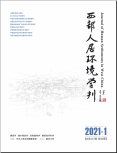西部人居环境学刊2024,Vol.39Issue(1):14-21,8.DOI:10.13791/j.cnki.hsfwest.20240103
面向城市更新财政可持续的空间生产逻辑与实践
Logic and practice of spatial production for urban regeneration and fiscal sustainability
摘要
Abstract
Urban regeneration,as a connotative development model during the period of urban stock development and high-quality urban construction,is of great significance for effectively addressing"urban diseases"and promoting the modernization of urban governance systems and governance capabilities.Since 1949,China's urban regeneration policy has undergone four stages of transformation:the exploration stage of a stable and progressive policy that shifts from consumer cities to production cities;the learning stage of an open policy that focuses on improving urban functions and environment;and the radical policy reform stage guided by the concepts of land finance and urban management;the stage of governance oriented urban regeneration centered on the people.In the future,urban regeneration will still be an important way for China's new urbanization construction. Fiscal sustainability provides an important fiscal guarantee for the long-term and sustainable promotion of urban regeneration.However,due to the fact that urban regeneration often takes a long time,it can bring a huge fiscal burden to governments,enterprises,or residents,especially under multiple pressures such as the tightening of resource and environmental constraints and the global economic downturn. Previous research on urban regeneration policies focused more on the investment,finance,taxation and fiscal,put more attention to analyze the relationships between various stakeholders in urban regeneration,or simply policy innovation and incentives.However,only when the local government's fiscal revenue can meet all the fiscal expenditures in a period of time can the local government maintain an orderly operation and a virtuous cycle of finance itself in the long run,namely fiscal sustainability,while the academic attention to fiscal sustainability of urban regeneration is relatively inadequate. Therefore,based on the theory of space production,this paper constructs a logical framework of"institutional space reconstruction-multiple subject behavior choices-social space reconstruction".The theory of space production provides an effective path for explaining the fiscal promotion of urban spatial reconstruction and value enhancement.Firstly,the political-institutional space includes macro and systematic top-level policy systems as well as micro and flexible underlying policy measures.The former involve the evolution of a series of laws and regulations,while the latter pay more attention to the financial balance of local governments to solve the problem of tight government financial funds.Secondly,urban regeneration involves the joint participation of multiple actors,which have differentiated effects on urban regeneration due to differences in interests and status,mainly including governments at all levels,the public,power subjects and market subjects.Thirdly,the reconstruction of political-institutional space production leads to the reconstruction of social-economic space.The reconstruction of stock space forms a positive interaction with multiple subjects,prompting each subject to produce new demands,and then promoting the emergence or reconstruction of new fiscal policies.On this basis,this paper proposes five basic logics and four guidelines that are conducive to achieving fiscal sustainability in urban regeneration.The five logics include urban regeneration value reconstruction,top-level policy design,and underlying logic of fiscal sustainability,property rights innovation,and holistic governance.The four principles refer to the principle that the government is neither absent nor offside,the market adheres to long-term operation,the rights subject user pays,and public participation and long-term supervision. Under this framework,this paper takes the urban regeneration of Jinsong Community as a case.Jinsong model successfully implements the fiscal sustainability logic of urban regeneration based on spatial production theory.Research has found that:Jinsong Community actively seized the policy opportunity of the state to promote the transformation of old residential areas,and cooperated with China Visionary and various government departments to carry out the transformation work of Jinsong old communities to promote the reconstruction of community value;explore the innovation of investment and financing models for urban regeneration,the untying of property rights and operation rights,and other models to ease the pressure on government finances and promote the balance of enterprise funds;build on diverse synergy,and establish a sustainable relationship featuring mutual benefit,win-win cooperation,mutual assistance and mutual trust among all parties.It is necessary to recognize the objective laws of space production.In general,the spatial reconstruction of urban regeneration fiscal system result from the promotion of community regeneration,the innovation of investment and financing mechanisms,and the property rights innovation.The reconstruction of institutional space provides policy guarantees for the reconstruction of social space,which is beneficial for both enterprises and governments to achieve long-term fiscal sustainability.Moreover,the success of the spatial transformation of old residential areas has a negative react on the construction of urban regeneration institution,and the interweaving and evolution of"institution-space"promotes the progress of urban regeneration orderly in the long term.关键词
城市更新/财政可持续性/空间生产/劲松模式Key words
urban regeneration/fiscal sustainability/space production/Jinsong model分类
建筑与水利引用本文复制引用
温锋华,蒋雅婷..面向城市更新财政可持续的空间生产逻辑与实践[J].西部人居环境学刊,2024,39(1):14-21,8.基金项目
国家自然科学基金面上项目(72174219)) (72174219)
中央财经大学一流学科建设项目(CUFEZF202301) (CUFEZF202301)

